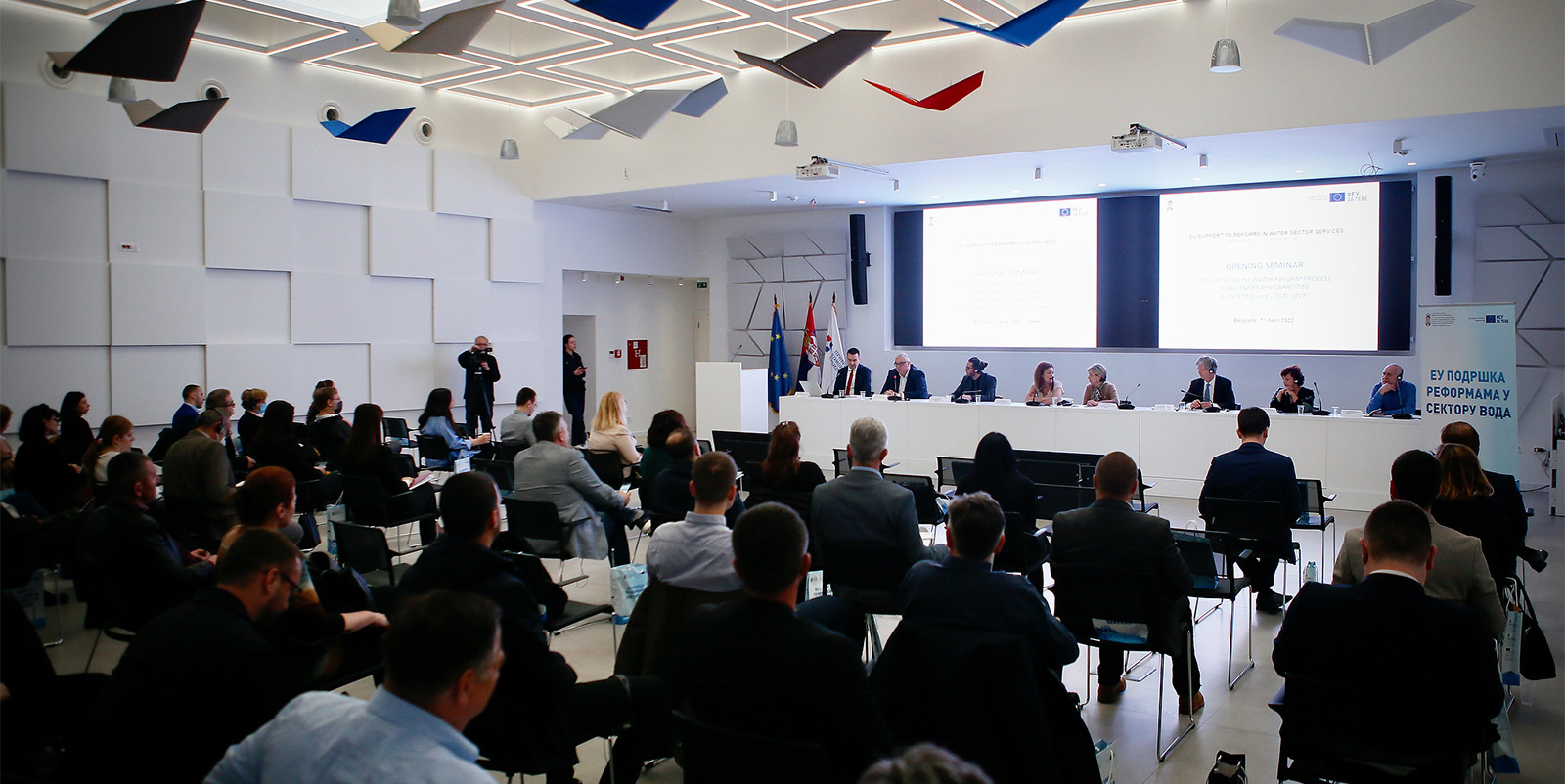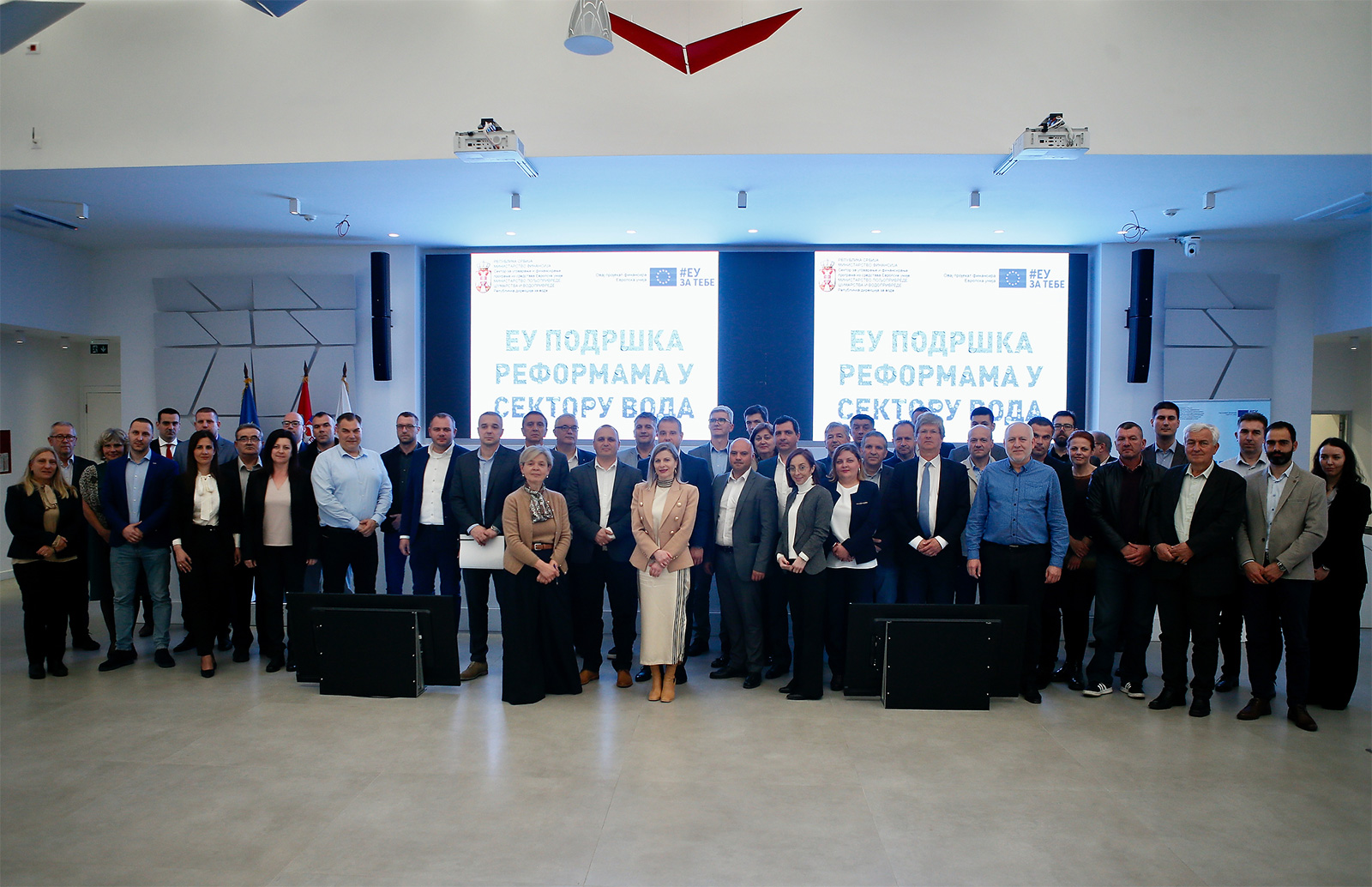
Following a successful inception period, Eptisa has started the implementation phase of the EU-IPA project “EU support to reforms in water sector services” in the Republic of Serbia.
Over a period of 24 months, a team of highly qualified local and international experts will support the Ministry of Agriculture, Forestry and Water Management and other relevant authorities to improve the efficiency of water services and to support the implementation of the requirements for cost recovery both at central and local levels.
To mark this occasion, a project opening event was held on the 7th of April at the premises of the Serbian Chamber of Commerce. Over 80 participants had an opportunity to hear from the representatives of the Ministry of Agriculture, Forestry and Water Management, the Republic Water Directorate, the EU Delegation to the Republic of Serbia, other important stakeholders, as well as representatives of the Eptisa team, about expectations, specific actions planned and main objectives of the project.
Furthermore, during the event representatives of selected local self-governments and public utility companies signed Memorandums of Understanding with the Republic Water Directorate, and will receive direct support from the project for improving their business planning and operations.

With an allocated budget of 1.8M EUR, the project includes two main components:
Component 1: Assessment of service provision situation and development of proposal on increasing efficiency of water sector services;
Component 2: Support for the implementation of revised cost recovery requirements (including implementation of tariff methodology) and establishment of a water pricing regulatory system.
Special attention will be paid to support the implementation of tariff methodology at local level, in the selected 20 pilot municipalities. Public utility companies in these 20 municipalities were selected among small, medium and large water providers in terms of population served, percentage of coverage with water services and annual turnovers in order to develop the tariff methodology model, and directly support local utility services’ quality improvements.
Watch the video from the presentation of the project:
